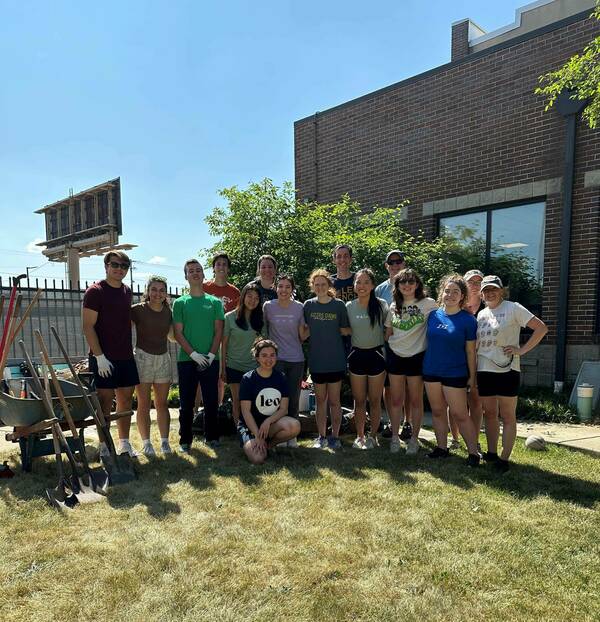The intern dungeon—as we have affectionately dubbed the basement room where LEO interns sit each day—is full of the most interesting economics majors that I have ever met.
Leah loves philosophy. Clara is a Chinese double major, and Halle talks in Spanish half the day to keep her skills sharp. We have two applied mathematics majors, one of whom also added an art history minor. In addition to discussing LEO projects on housing or education, we fill our afternoons by contemplating the question hovering over all our heads: “How will we use our academic interests to forge a meaningful career path?”
I, for one, am an English and Economics double major with a minor in Journalism. I applied to work as the policy and impact intern for LEO partly because it seemed like a role that would complement my majors. And it does. Every day, I get to write about economic research, much of it using the forward-facing tone of explanatory journalism.
However, the thing that binds the LEO interns together the most is not our gripes about difficult econ classes or coding in Stata. Rather, every intern is motivated by a deep passion for LEO’s mission.

Foundational to working at LEO is a desire to do good in the world, and a belief that research has the power to make real change.
Teddy Maginn, a rising senior studying Economics and Applied Math, views LEO as inseparable from Notre Dame’s mission.
“As an undergrad, being able to work and contribute to something that’s actually having a real-world impact I feel like is unfortunately, a bit rare, but also a kind of precious opportunity,” he said.
Teddy highlighted the combination of qualitative and quantitative study that is fundamental to economics—“a science with a human element,” in his words—and said that the LEO internship program encapsulates that doubleness.
“I work with really big datasets, and do all this data analysis. But then at the same time, you have to know how to talk to the providers we work with, and there’s kind of this one-on-one element of compassion, too. I think [interning at LEO] is a pretty cool combination of both of those things,” Teddy said.
The LEO Scholars program allows a group of 10 or so interns to work at every part of the research process, while engaging with LEO’s mission through presentations and other activities. Emily Nye, the undergraduate and personnel specialist at LEO, runs the program.
Emily said that the internship program started organically at LEO, where founders Jim Sullivan and Bill Evans hired an undergraduate intern before they could afford employees. This, she said, shows how undergraduates have been “essential” to LEO since the beginning—something that will always continue.
“But it also says that the initial essence of the internship starting out was real research. Not at all dumbed down, these students got … to really interact with data,” Emily said. “The legacy of the internship program is that we want to continue that special aspect of getting access to real data, trying to solve real problems, and the discernment that comes with that about whether a student wants to go on and continue their studies in graduate school, or continue doing research as a career.”
“The legacy of the internship program is that we want to continue that special aspect of getting access to real data, trying to solve real problems, and the discernment that comes with that about whether a student wants to go on and continue their studies in graduate school, or continue doing research as a career.”
In addition to hosting an intern coffee hour, Emily plans learning opportunities for the LEO scholars. We have heard from partners about the challenges with implementing a randomized control trial when community members are skeptical of lotteries. We’ve volunteered with South Bend non-profits, including a particularly memorable day at Cultivate packaging rescued food. And we’ve learned from the RAs how to code more effectively, culminating in a high-stakes ugliest graph competition.
In addition to day-to-day work, these events have opened my eyes to the impact of LEO and the importance of mission-driven research, something that Emily notes as well.
“What inspires me and gives me the most hope are the comments that I hear from them, when they have their eyes opened in a new way to the suffering of those right next to us,” Emily said.
Though not all of us have decided to enter academia and continue doing poverty research as a result of our LEO internship, we have all built empathy for the suffering of our closest neighbors.
“It’s where I see a lot of power that we have to make a difference in the United States—not merely by what the researchers are doing, and not just by scaling up interventions or the lobbying on Capitol Hill, but I think most fundamentally, informing the future, and informing and inspiring those students to take something that they care deeply about, and to use it for good in the world.”